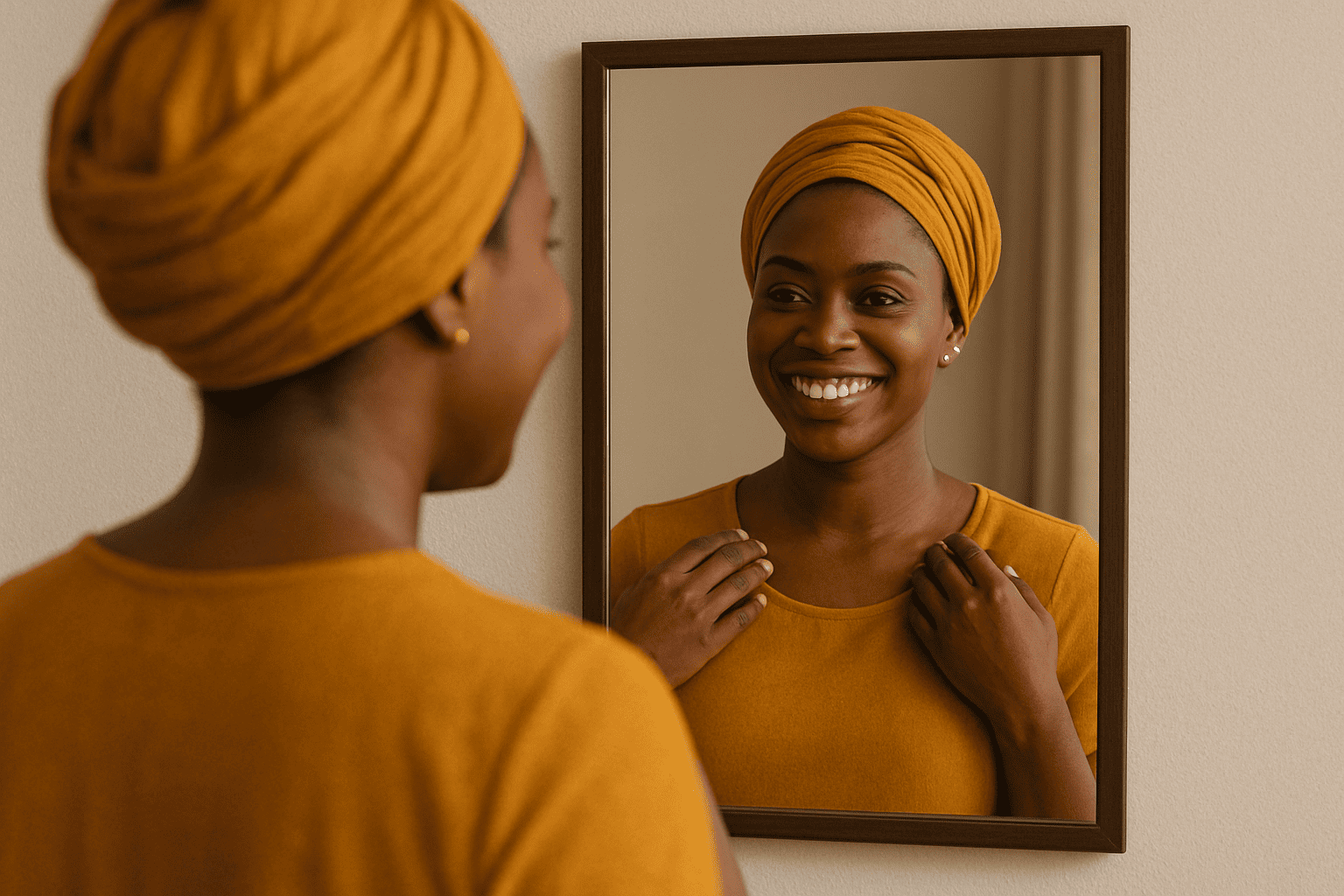Why every couple struggles — and how African couples can turn challenges into stronger, more fulfilling relationships.

The Myth of Perfect Love
Love stories in Nollywood movies often end with weddings, kisses, and happily-ever-afters. But ask any couple who’s been together for more than a year, and they’ll tell you: real love isn’t perfect.
It’s messy. It’s late-night arguments, misunderstandings over little things, and moments where you wonder if the spark is still there. And yet, those very struggles are what make relationships authentic.
Struggles don’t mean your relationship is broken — they mean it’s real. Two unique people, with different values, backgrounds, and personalities, will naturally clash. What determines whether love lasts isn’t the absence of problems, but the presence of commitment, empathy, and grace.
Section 1: Why Relationship Struggles Happen
1. Different Backgrounds and ExpectationsIn African societies, culture and upbringing play huge roles in shaping relationships. A man raised in a traditional Nigerian Igbo household may expect his wife to prioritize home duties, while a woman raised in a modern South African urban setting may value shared responsibilities. Neither is wrong — but the clash of expectations can create tension.
➡️ Example: Chinedu, a banker in Lagos, once argued with his fiancée, Amara, because she refused to quit her job after marriage. He saw her insistence as rebellion; she saw his demand as control. Their struggle wasn’t about love — it was about cultural scripts clashing with personal desires.2. Unspoken Needs and Communication Gaps
Many African couples were raised in environments where deep emotional conversations weren’t encouraged. Men are taught to “be strong” and avoid vulnerability, while women may fear speaking up about dissatisfaction. The result? Silence. But silence breeds resentment.
➡️ Example: In Johannesburg, Lerato often complained that her husband, Sipho, never complimented her. Sipho, shocked, said, “But I provide, don’t I? That’s how I show love.” What he didn’t realize was that she longed for words of affirmation, not just financial provision.3. External Pressures (Money, Family, Society)
Relationships don’t exist in a vacuum. In Nigeria, a man struggling with unemployment may feel emasculated when his wife becomes the main provider. In South Africa, a woman may face pressure from her family to send money home, while her partner feels neglected.
Money, family expectations, and even religious influences often sneak into relationships, magnifying already existing tensions.Section 2: The Human Side of Struggles
At the heart of most relationship struggles are not the fights themselves — but the emotions underneath.
When a partner complains about money, it’s rarely about the naira or rand itself — it’s about security.
When someone feels jealous, it’s rarely about distrust — it’s about fear of losing love.
When a partner pulls away in silence, it’s not always pride — sometimes it’s fear of saying the wrong thing.
➡️ Real Talk: In many African homes, people confuse conflict with disrespect. But conflict, handled right, can actually deepen intimacy. It forces couples to see beyond the surface and understand the fears and needs beneath each word.Section 3: How to Turn Struggles Into Strength
1. Communication is King (and Queen)Stop assuming your partner knows what you want. Speak up — gently, honestly, and without accusation.
Instead of: “You never spend time with me.”
Try: “I feel lonely when we don’t spend time together. Can we set aside one evening a week just for us?”
2. Listen With the Heart, Not Just the EarsIn African homes, we are quick to listen to reply, not to understand. But deep listening means pausing judgment and truly trying to feel what your partner feels.
➡️ Tip: Repeat back what your partner says — it shows you heard them. E.g., “So you feel ignored when I’m always on my phone. I didn’t realize that. Thank you for telling me.”
3. Choose Love Over EgoPride is one of the biggest killers of relationships. In Nigerian slang, “shakara” can be fun in the beginning, but when pride prevents apologies, couples drift apart. Remember: winning an argument means nothing if your partner feels like they’ve lost you.
4. Get Help Without ShameIn Africa, therapy or counseling is still taboo. Many see it as “airing dirty laundry” or weakness. But seeking help is a sign of strength, not failure. Whether it’s a trusted pastor, an elder, or a professional therapist, don’t be afraid to get guidance.
➡️ Real Example: A couple in Abuja almost divorced after constant financial fights. Through counseling, they realized the husband’s “stinginess” came from childhood poverty trauma, while the wife’s “overspending” was her way of feeling free after years of restriction. Once they understood each other, they found compromise.
Section 4: Persuasive Reminder — Struggle Doesn’t Mean FailureEvery strong couple you admire — your parents, that long-married neighbor, or even public figures — has struggled. They’ve argued, cried, and questioned if it was worth it. But what makes their love last is this: they chose each other, again and again, despite the struggles.
Struggles can be the very thing that shapes your relationship into something deeper, stronger, and more real.
Conclusion: The Beauty of Imperfect LoveLove is not about avoiding struggles. It’s about finding someone worth struggling with. It’s about holding hands in the storm, learning from the tension, and building a stronger bond through each test.
So, if you’re going through a rough patch, don’t give up. Don’t assume your relationship is doomed. Instead, lean in. Talk. Listen. Forgive. Grow. Because at the end of the day, the strongest relationships aren’t the ones without struggles — they’re the ones that turn struggles into stepping stones for deeper intimacy.
💡 Every relationship has its battles. What matters is whether you both choose to fight the problem — not each other.
Was this post helpful?
Comments (0)
No comments yet. Be the first to comment!
Leave a Comment
Related Topics

Best Love Advise That Lasts: Building From Within
Why Self-Love, Friendship, and Respect Are the Cornerstones of Real Relationship...
Turbulence on the Ground: What the Air Peace Hostess–Passeng...
When professionalism meets provocation at 30,000 feet — and the whole country wa...

Is the Honeymoon Phase a Myth? Understanding Love’s Most Rom...
The honeymoon phase might be ruining your relationship. Surprising research reve...

About 9jaruns Dating App/Website
Let's Hook You Up

Why Sexual Needs Differ for South African Women
A Look at Biology, Psychology, and Culture
